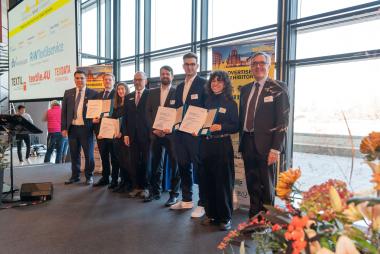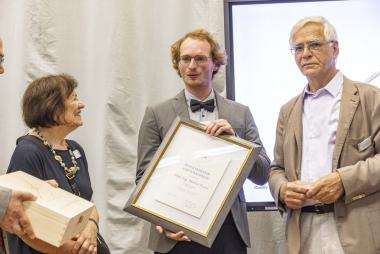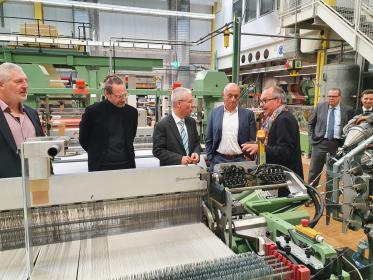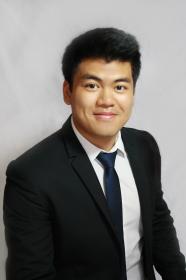Walter Reiners Foundation honours young engineers
As part of the Aachen-Dresden-Denkendorf International Textile Conference in Dresden, the Chairman of the Walter Reiners Foundation of the VDMA, Peter D. Dornier, presented awards to four successful young engineers. Two promotion prizes and two sustainability prizes were awarded in the Bachelor and Diploma/Master categories. Academic works in which solutions for resource-saving products and technologies are developed are eligible for the sustainability prizes.
A sustainability prize worth 3,000 euros in the Bachelor's category was awarded to Franziska Jauch, Niederrhein University of Applied Sciences, for her Bachelor's thesis on pigment digital printing in denim production.
The promotion prize in the Bachelor's category, also worth 3,000 euros, went to Annika Datko, RWTH Aachen, for her work on determining the polyester content in used textiles.
Dave Kersevan, TU Dresden, was honoured with a sustainability prize in the Diploma/Master's category, endowed with 3,500 euros. The subject of his thesis was the development of a laboratory system for the production of needled carbon preforms.
This year's promotion award in the Diploma/Master's category, endowed with prize money of 3,500 euros, went to Flávio Diniz from RWTH Aachen. The subject of his Master's thesis was the feasibility of manufacturing ultra-thin carbon fibres.
The award ceremony 2024 will take place in April at the VDMA stand at the Techtextil fair in Frankfurt.
VDMA Walter Reiners Foundation Award Aachen-Dresden-Denkendorf International Textile Conference
VDMA e.V. Textile Machinery













